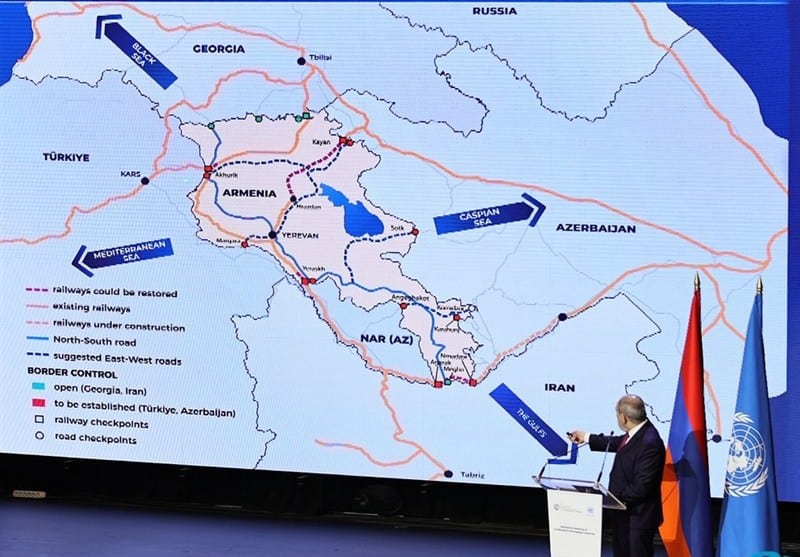What is behind the US plan regarding the Zangezur Corridor?
Nearly five years after the November 2020 trilateral ceasefire declaration that ended the 44-day war between Armenia and Azerbaijan, the two sides remain at odds over remaining issues, including the reopening of regional transport routes.
At the heart of these disputes is the proposed but yet-to-be-realized Zangezur Corridor, a transit route that would connect mainland Azerbaijan to Nakhchivan via Armenia’s southern Syunik province.
Initially envisioned as a way to build economic interdependence in the post-war space, the corridor has since become a geopolitical flashpoint that reflects not only conflicting national interests but also shifting power dynamics in the region.
Controversial US plan; from denial to confirmation
Amid these disputes, reports have emerged that the US may take action to control the route. According to these reports, the Trump administration had proposed that an American company manage the transit route connecting Azerbaijan to Nakhchivan via Armenia. The story was initially quickly dismissed as “fake news” by a senior figure in Armenia’s ruling Civil Alliance party.
However, after the summit in Abu Dhabi, Thomas Barrack, the US ambassador to Turkey, casually stated that an American company could manage the Armenian section of the Nakhchivan route under a 100-year lease.
Pashinyan’s subsequent statements also confirmed these reports. This immediately drew sharp criticism from the opposition and Armenian analysts, who accused him of undermining national sovereignty and failing to mention reciprocal arrangements for Armenia’s transit through Azerbaijani territory.
Regional reactions: From Baku and Tehran’s Opposition to Yerevan’s Ambiguity
At the Shusha Global Media Forum on July 19, Azerbaijani President Ilham Aliyev rejected any idea of an American company operating on his territory at the beginning and end of the Armenian sector.
His remarks also questioned Armenia’s “Crossroads of Peace” initiative, suggesting that it would not turn Armenia into a true transit country. Tehran has also warned against any attempts to change the regional status quo, especially near its borders.
This growing complexity is precisely what has hindered the path to bilateral peace between Azerbaijan and Armenia.

